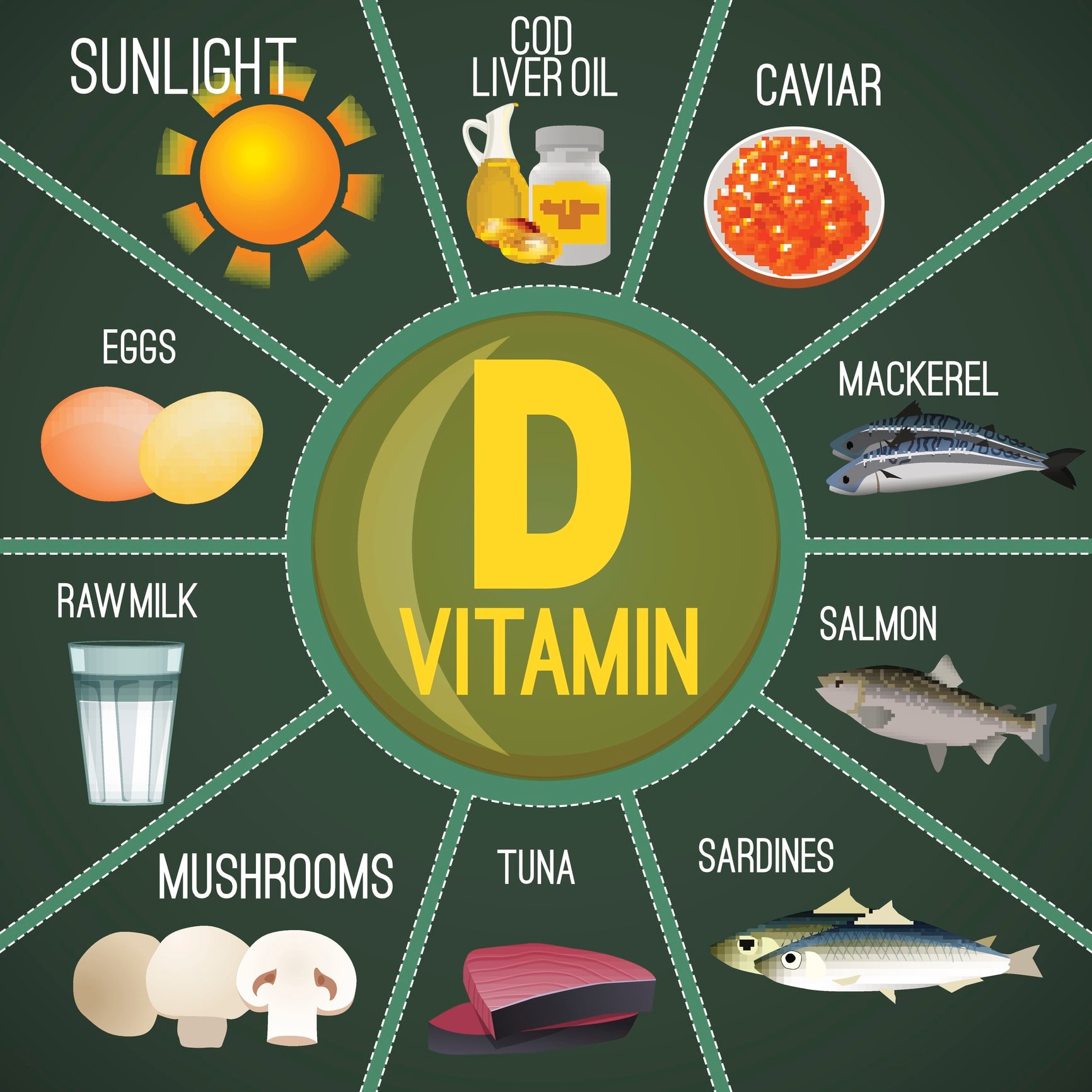Did You Get Your Vitamin D Today?
It’s hard to say enough about the health benefits of vitamin D. Check out the great things it can do for your body and how to treat a deficiency.

Did you get your dose of vitamin D today? You might not think it’s a big deal but vitamin D is essential for healthy bones, and a lack of it can lead to many health problems.
It’s one of the four fat-soluble vitamins (A, D, E, K), but it is not technically a vitamin because it’s produced in the human body. And when it’s obtained from foods, it must be transformed by the body before it can benefit from it. So how can you get adequate vitamin D into your diet, and treat a deficiency?
Health Benefits of Vitamin D:
- Vitamin D allows the body to absorb calcium—that’s why milk is often vitamin-D fortified. Maintaining healthy levels of vitamin D can increase bone mass and strength, preventing osteoporosis and broken bones. It can even slow the deterioration of cartilage that causes arthritis.
- It strengthens the immune system, giving the body greater ability to reduce inflammation from infections, and it increases muscle strength.
- Vitamin D has been connected to the prevention of colon cancer, and there is some evidence that it can help protect people from prostate and breast cancer as well.
- Medical research suggests that it may have a role in preventing diabetes, hypertension, glucose intolerance, and multiple sclerosis.
Where Do You Get Vitamin D?
The easiest way is by getting some sun. The sun’s ultraviolet B (UVB) energy turns a chemical in your skin into vitamin D3, which is carried to your liver and then your kidneys, transforming it to active vitamin D (see diagram, below).
You need 5-30 minutes of midday sun (between 10 am and 3 pm), two or more times a week—easy enough if you can go outside for your lunch break. However, if you live north of the 42 degrees latitude line (north of Boston and Northern California), from the months of November to February, the sunlight is not strong enough to produce adequate vitamin D. But if you live south of Los Angeles or South Carolina, the sun is strong enough all year long.

Are You Vitamin D Deficient?
Many people who live at northern latitudes or work inside all day are often vitamin D deficient because they don’t get enough sun and because the vitamin also does not occur naturally in very many foods. It is, however, added to some foods like vitamin D fortified milk and cereal (milk fortification was originally introduced in the U.S. in the 1930s to fight rickets—or softening of the bones—caused by vitamin D deficiency, which was a major health problem then). You can find it naturally in cod liver oil, egg yolks, salmon and other fish, beef, and cheese, but consider taking a vitamin D supplement to make sure you are getting enough. If you take a calcium supplement, consider taking one that includes vitamin D.
How Much D Do You Need?
Health professionals agree that most people don’t need more than 600 to 800 IU per day. Some people may need a higher dose, but your doctor would advise you on the proper amounts. Unless your doctor recommends it, avoid taking more than 4,000 IU per day, which is considered the safe upper limit.
Facts about vitamin D can be found The National Institute of Health Website’s Dietary Supplement Fact Sheet.
This article was published by the staff at Farmers' Almanac. Do you have a question or an idea for an article? Contact us!







